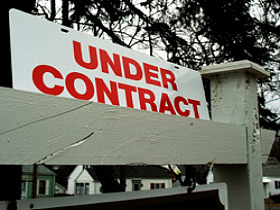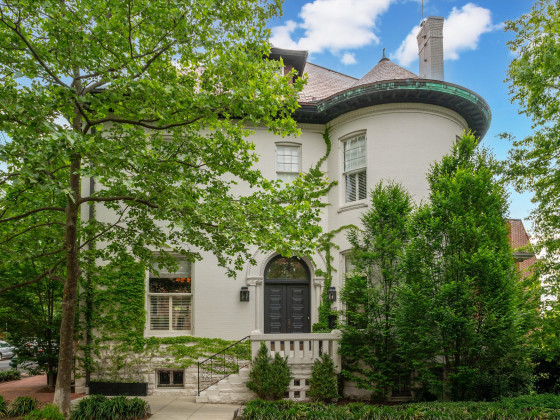 The Buyer's Experience: The 90-Day Rule
The Buyer's Experience: The 90-Day Rule
✉️ Want to forward this article? Click here.
The Buyer's Experience is a feature on UrbanTurf where home buyers and sellers tell the good, the bad, the ugly and the weird associated with their home buying or selling experience.

If you feel tempted to buy a home that was purchased and renovated in a relatively short amount of time, you should probably be wary for many reasons, but one is that most lenders will not approve loans for a home that is back on the market less than 90 days after it was purchased. This is to protect buyers (and banks) from fraud. For further protection, lenders often require that homes purchased within the past six months undergo two appraisals to justify any increase in price.
UrbanTurf spoke with lender William Slosberg at Acacia FSB for some insight into the reasoning behind the rule.
"Fannie Mae and Freddie Mac were concerned of the potential for fraud" Slosberg said. "They questioned how much renovation could be done within 90 days to justify a significant increase in the sales price."
Slosberg explained that the 90 day mark helps to ensure the buyers are really getting added value with the higher price.
“Think of it: you purchase a house, then you have to apply for building permits, get the permits, start the work, get the work inspected, put it on the market, sell it and go to settlement. Those situations are few and far between."
FHA loans used to contain this stipulation, but HUD has temporarily suspended it. Back in 2010, FHA commissioner David H. Stevens said that the objective with suspending the rule was to speed sales of renovated houses, often foreclosures, to first-time buyers and other purchasers. Still, there are several conditions that apply regarding the increase in value and the relationship between buyer and seller that are aimed at protecting the borrower. The suspension of the stipulation is set to expire on December 31, 2011.
However, for all it does to protect buyers, the 90-day rule can often cause confusion. Karen deGategno and her husband Patrick almost landed on the streets as a result of it.
Eager to buy their first house, the deGategnos found a home in Brookland that fit a number of their requirements (quiet street, north-south facing exposures and proximity to a Chinese-English bilingual public charter school). They qualified for a conventional loan, went under contract and planned their move, giving notice to their landlord.
However, the 90-day rule was in play with the home, and the constraint didn’t emerge until an underwriter put all the pieces together days before their desired closing date. The deal screeched to a halt and everyone had to wait until the 90-day mark, which passed on September 30th, before closing could happen. With a new tenant moving into their old place on October 1, Patrick and Karen made their move with just hours to spare, and despite all the confusion, love their new place.
If you have a good, bad, crazy or weird buying or selling experience that you deem worthy of sharing with the UT audience, send an email to shilpi@urbanturf.com.
See other articles related to: 90-day rule, dclofts, fannie mae, fha, freddie mac, mortgage lending
This article originally published at http://dc.urbanturf.production.logicbrush.com/articles/blog/the_buyers_experience_the_90_day_flip_rule/4361.
Most Popular... This Week • Last 30 Days • Ever

Chris Hughes and husband Sean Eldridge are putting their Kalorama home on the market ... read »

Today, UrbanTurf is taking a look at the tax benefits associated with buying a home t... read »

Lincoln-Westmoreland Housing is moving forward with plans to replace an aging Shaw af... read »

Only a few large developments are still in the works along 14th Street, a corridor th... read »

A soccer stadium in Baltimore; the 101 on smart home cameras; and the epic fail of th... read »
DC Real Estate Guides
Short guides to navigating the DC-area real estate market
We've collected all our helpful guides for buying, selling and renting in and around Washington, DC in one place. Start browsing below!
First-Timer Primers
Intro guides for first-time home buyers
Unique Spaces
Awesome and unusual real estate from across the DC Metro














